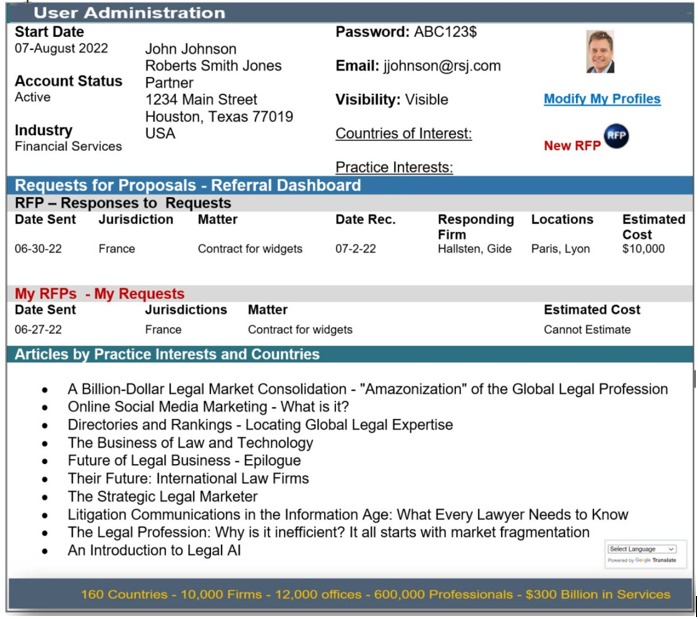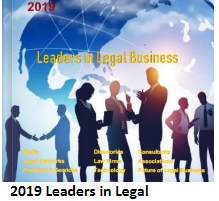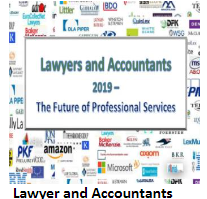Dr . Silvia Hodges Silverstein Executive Director, Buying Legal Council
Dr. Silvia Hodges Silverstein is executive director of the international trade organization Buying Legal Council, a lecturer in law at Columbia Law School, and an adjunct professor at Fordham Law School.
________________________________________________________________________________
Why Do Your Clients Involve Legal Procurement?
It is typically
the organization’s top management, often the CFO, who mandates procurement’s
involvement with the buying of legal services. The goal is to help in-house
counsel better manage cost and reduce supplier spending, and to ensure that
they buy legal services in compliance with company policies. Other drivers of
bringing in procurement include the desire to achieve more objective
comparisons of legal service providers through measuring and benchmarking
outside counsel’s value and the desire to streamline operations, improve
efficiencies, find better ways to structure both fee arrangements and
budgeting, and increase predictability and transparency.
When souring
legal services, procurement commonly takes a process-driven,
business-to-business approach used in other “categories” or areas of spending.
Legal procurement supports in-house counsel with decision-grade data and
develops the purchasing strategy, process, and criteria, as well as in
negotiation and contract development phases, engagement letter, retainer, or
framework agreements. Typically, procurement issues requests for proposals
(RFPs) and manages the proposal process. This can take the form of
matter-specific RFPs or panel RFPs for a group of preferred providers.
Many legal
procurement professionals today are also responsible for fee negotiations.
Procurement’s expertise in negotiating favorable economics and contracts for
their employers has the potential to put law firms under significant and often
new pressure to deliver more for less in the future.
Procurement is often also responsible for monitoring firms’ billing behavior and adherence to billing guidelines. Legal procurement checks firms’ compliance to billing agreements, and — if necessary — intervenes. What’s more, procurement conducts post-purchase performance evaluations. The above-mentioned GlaxoSmithKline case study describes the pharmaceutical company’s approach of firm evaluations, asking both in-house counsel and outside counsel to evaluate outside counsel’s performance on a given matter using a set number of dimensions (such as overall management of a matter).[2]
Does Procurement Influence the Purchasing of Your Type of Legal Services?
Legal
procurement professionals typically source and manage “ancillary” legal services
including e-Discovery, court reporting, medical records, or registered agent
services. They are often responsible for shortlisting the providers, evaluating
the offers, and even selecting the providers.
Routine legal
services such as document review and due diligence are also commonly sourced by
legal procurement. However, it is more common that in-house counsel are
involved in shortlisting different providers and making the final decision.
At more and more
companies, legal procurement is even involved in sourcing complex, high-value,
high-stakes legal services. It typically leads the procurement process,
ensuring that robust criteria for evaluation and selection are established and
applied in compliance with corporate policies. Today, procurement is also regularly
involved in sourcing, managing, and influencing so-called “bread and butter”
legal services (those between high-stakes work and more routine, repetitive
work).
Procurement is
involved in a broad range of legal services from litigation, transactional, and
— to a somewhat lesser degree — advisory work, in a wide range of practice
areas: from commercial law, M&A, real estate, and employment, to
intellectual property law, and more.
While legal procurement professionals often decides on ancillary legal services providers, they rarely — if ever — make the final decision on which firm to choose, nor do they have the ability to veto in-house counsel’s decision. Although procurement may make suggestions about firms to invite to tender for work, it is generally the legal department’s prerogative to name the firms it deems capable and appropriate to do the work, and to establish which legal and subject matter expertise is needed. The general counsel and designated in-house legal team also make the final decision. This is unlikely to change in the future.
What is Important to Legal Procurement Professionals?
Legal
procurement professionals look for lawyers and law firms who have experience
with legal issues similar to the one at hand (for matter-specific RFPs) or for
types of services the company typically faces (when looking for panel firms).
The firms’ and their lawyers’ know-how and skills must be well matched. As a
rule, procurement will want to know if the firm has done similar work or solved
a similar issue for another client. More advanced versions of this are whether
the lawyer or firm has argued in front of a particular judge or court.
Procurement wants to be sure outside counsel will be able to deliver the
desired outcome and be efficient.
Procurement
naturally looks to match the right firm with the right expertise for the right
amount of money: Value for money and service excellence is central to
procurement when evaluating firms’ offerings.
Procurement also
looks for firms offering value-added options. Continued legal education (CLE)
seminars for in-house counsel and business-level training as well as
hotline/helpline access for in-house counsel and line management to ask quick
questions are favorites among procurement professionals. Other desired value-adds
include in-person visits of the client’s office/plant/facility to get to know
their business; participation on internal calls that provide insight into a
specific business or practice area; Secondments of lawyers; provision or
development of basic templates and forms; conducting pre-matter planning
sessions; and share-points with real-time access to the company’s documents.
(See the Buying
Legal Council’s annual survey for
further information.)
Procurement also
looks at law firm’s approach to staffing
(What is the lawyer to paralegal ratio? What is the percentage of
partner hours?) and how firms deliver the service. Project management and
process improvement capabilities have become important to legal procurement
professionals.
Procurement is
certainly not shy about its intent to lower legal spending, and unless
alternative fee arrangements are used, legal procurement professionals clearly
expect discounts on law firm’s standard rates. It is untrue, however, that
procurement professionals only look at the lowest price without consideration
of a firm’s expertise and experience.
If your clients
involve procurement, you may need to rethink how you deliver legal services,
reengineer your processes, improve your project management capabilities, boost
your pricing prowess, and perfect your cost management.
It is highly
advised that you to develop relationships with your current and prospective
clients’ legal procurement professionals if you haven’t done so already. Do not
wait until they issue the next RFP. Get to know them, understand what is
important to them and what drives their decisions. You are more likely to
prepare a proposal offer that is aligned with their intentions and more likely
to win the work. (See the Buying Legal Council’s latest book, “Winning
Proposals,” for further information.)
Think also about which legal tasks and projects you could or should standardize, and automate and work with procurement to discuss the options. Show how you plan to bring real efficiencies to their matters. Show that you are a great partner for their company.
[1] See, e.g., Heidi K. Gardner & Silvia Hodges
Silverstein, GlaxoSmithKline: Sourcing
Complex Professional Services 2, 4 (Harv. Bus. Sch. Case No. 414-003, rev.
2014); Silvia Hodges, Power of the
Purse: How Corporate Procurement is Influencing Law Firm, Law Practice Today (Jan. 2012), https://www.americanbar.org/content/dam/aba/publications/law_practice_today/power-of-the-purse-how-corporate-procurement-is-influencing-law-firm.authcheckdam.pdf
[hereinafter Power of the Purse].





 Software
Software Law
Law Legal
Legal






